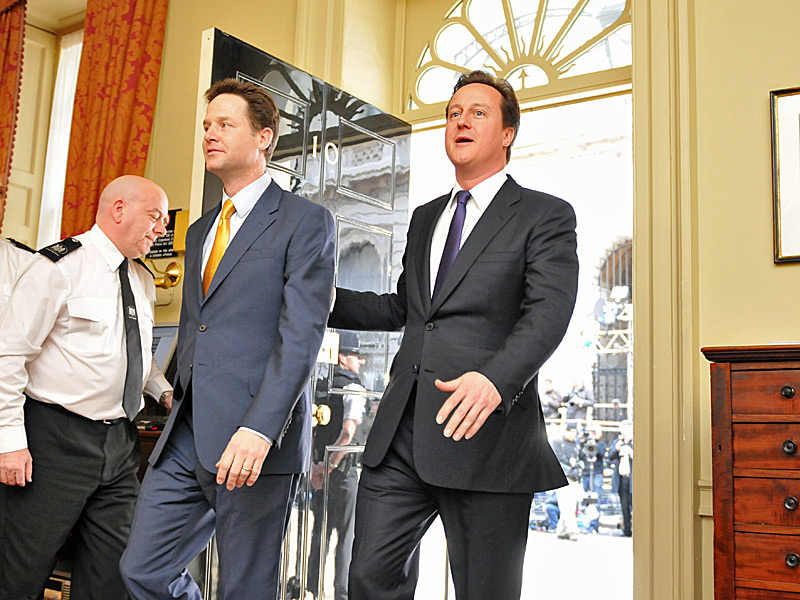Prime Minister David Cameron and his Liberal Democrat deputy, Nick Clegg, have unveiled emergency surveillance legislation that will shore up government powers to require phone and internet companies to retain and hand over data to the security services, The Guardian reported.
 The emergency legislation – due to be debated on Tuesday and complete all its parliamentary stages by Thursday next week – will also confirm that foreign-based companies should hand over data harvested in the UK, a move that implicitly accepts the revelations by former NSA contractor Edward Snowden may have disclosed surveillance activities that did not have international legal authority.
The emergency legislation – due to be debated on Tuesday and complete all its parliamentary stages by Thursday next week – will also confirm that foreign-based companies should hand over data harvested in the UK, a move that implicitly accepts the revelations by former NSA contractor Edward Snowden may have disclosed surveillance activities that did not have international legal authority.
The government said it was forced to act after a European court of justice ruling on 8 April and because a growing number of foreign-based, predominantly American, phone companies were threatening to stop handing over details of UK customers’ data.
The ECJ legal judgment and the new reluctance by companies to cooperate with security services has largely been driven by the civil liberties debate sparked by the Snowden revelations.
Cameron said: “I am simply not prepared to be a prime minister who has to address the people after a terrorist incident and explain that I could have done more to prevent it.”
The prime minister has won the support of the Liberal Democrats and Labour in private talks over the past week, warning that a legal cliff-edge faced the government. In return for the emergency laws, the Liberal Democrats and Labour have won long-sought reforms to the accountability of the security services that the intelligence agencies and the prime minister have repeatedly opposed.
At a hastily called Downing Street press conference Cameron also for the first time embraced the need for a debate about the powers of the security services.
The main measures outlined are:
• A privacy and civil liberties board, based on the US model, will be established to oversee the security services and act as an independent watchdog.
• An annual transparency report will be published on the amount of data intercepted.
• A new flexibility in the length of time data is retained, so it is only held for up to 12 months.
• A two-year expert review of the relevance of the Regulation of Investigatory Powers Act 2000 that will – on the Labour and Liberal Democrat side – look at the process of granting intercept warrants, and – on the Conservative side – look at the possibility of extending the powers of the security services. That review will be completed after the election.
• A reduction in the number of public bodies that will be able to access data so, for instance, local councils will need to ask a third party to look at data.
• A limit on the kind of data that can be accessed by the state.
• An agreement that the legislation will fall in 2016, and require fresh legislation that can be scrutinised by parliament in the normal way.
• A new restriction that data can no longer be gathered purely in the interest of the economic wellbeing of the UK.
• The appointment of a former senior diplomat to negotiate with the US on cooperation over data transfer, including a possible speeding up of the hand-over arrangement under mutual legal assistance agreements.